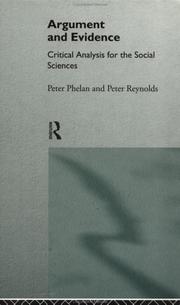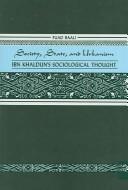| Listing 1 - 10 of 126 | << page >> |
Sort by
|
Book
ISBN: 9783030991043 Year: 2022 Publisher: Cham Springer International Publishing :Imprint: Palgrave Macmillan
Abstract | Keywords | Export | Availability | Bookmark
 Loading...
Loading...Choose an application
- Reference Manager
- EndNote
- RefWorks (Direct export to RefWorks)
Civilization. --- Barbarism --- Civilisation --- Auxiliary sciences of history --- Culture --- World Decade for Cultural Development, 1988-1997
Book
ISBN: 1283436256 1443834378 9786613436252 9781443834377 9781283436250 1443833762 9781443833769 6613436259 Year: 2011 Publisher: Newcastle upon Tyne Cambridge Scholars
Abstract | Keywords | Export | Availability | Bookmark
 Loading...
Loading...Choose an application
- Reference Manager
- EndNote
- RefWorks (Direct export to RefWorks)
Humankind has always striven to catch a glimpse of the future. Egyptian priests, Babylonian astrologers, Greek oracles and medieval magicians stared at the sky and tried to foresee the coming catastrophes, relying on certain distributions of the stars. Co
Forecasting. --- Civilization. --- Barbarism --- Civilisation --- Auxiliary sciences of history --- Culture --- World Decade for Cultural Development, 1988-1997 --- Forecasts --- Futurology --- Prediction
Book
ISBN: 1134947917 1280109920 9786610109920 0203407776 0203323513 9780203323519 Year: 1995 Publisher: London New York Routledge
Abstract | Keywords | Export | Availability | Bookmark
 Loading...
Loading...Choose an application
- Reference Manager
- EndNote
- RefWorks (Direct export to RefWorks)
This clear and thought-provoking examination of the years from Queen Victoria's accession to the close of the century, pays particular attention to the post-1875 period.
Great Britain --- History --- Civilization. --- Barbarism --- Civilisation --- Auxiliary sciences of history --- Culture --- World Decade for Cultural Development, 1988-1997

ISBN: 1134824017 1280325429 0203200748 0203296176 9780203296172 9780203200742 9786610325429 6610325421 9780415113724 0415113725 0415113725 0415113733 9781134824014 9781280325427 9781134823963 1134823967 9781134824007 1134824009 9780415113731 0415113733 Year: 1996 Publisher: London New York Routledge
Abstract | Keywords | Export | Availability | Bookmark
 Loading...
Loading...Choose an application
- Reference Manager
- EndNote
- RefWorks (Direct export to RefWorks)
Phelan and Reynolds' book is for anyone who needs to evaluate arguments and interpret evidence. It deals with the most fundamental aspects of academic study: * the ability to reason with ideas and evidence* to formulate arguments effectively* to appreciate the interplay between ideas and evidence in academic and media debateArgument and Evidence presents aspects of informal logic and statistical theory in a comprehensible way, enabling students to acquire skills in critical thinking which will outlast their undergraduate studies. Ideal as a companion for courses on met
Social sciences --- Civilization. --- Barbarism --- Civilisation --- Auxiliary sciences of history --- Culture --- World Decade for Cultural Development, 1988-1997 --- Methodology.
Book
ISBN: 9783030845667 Year: 2022 Publisher: Cham Springer International Publishing :Imprint: Palgrave Macmillan
Abstract | Keywords | Export | Availability | Bookmark
 Loading...
Loading...Choose an application
- Reference Manager
- EndNote
- RefWorks (Direct export to RefWorks)
Civilization. --- Europe --- Intellectual life --- Civilization --- Auxiliary sciences of history --- Culture --- World Decade for Cultural Development, 1988-1997 --- Barbarism --- Civilisation
Book
ISBN: 9781137565501 Year: 2021 Publisher: London Palgrave Macmillan UK :Imprint: Palgrave Macmillan
Abstract | Keywords | Export | Availability | Bookmark
 Loading...
Loading...Choose an application
- Reference Manager
- EndNote
- RefWorks (Direct export to RefWorks)
Sexual minority youth. --- Civilization. --- Barbarism --- Civilisation --- Auxiliary sciences of history --- Culture --- World Decade for Cultural Development, 1988-1997 --- Minority youth

ISBN: 9004132821 9004405429 1423730070 9781423730071 9789004132825 9789004405424 Year: 2003 Publisher: Leiden Boston Brill
Abstract | Keywords | Export | Availability | Bookmark
 Loading...
Loading...Choose an application
- Reference Manager
- EndNote
- RefWorks (Direct export to RefWorks)
The growing interest in civilizations, both on the level of political controversy ("the clash of civilizations") and in the context of scholarly debates, calls for more theoretical reflection on the problems and perspectives central to this field of social inquiry. This book contains the first systematical and critical survey of classical and contemporary approaches to comparative civilizational analysis; it goes on to outline a theoretical model that draws on the work of historical sociologists as well as on comparative cultural and intellectual history. Civilizations are analyzed as multi-dimensional formations, with particular emphasis on cultural orientations, but also on the autonomous dynamics of political and economic institutions. The last chapter applies this line of argument to questions raised by critics of Eurocentrism and discusses the strengths and weaknesses of postcolonial theory.
Civilization --- Civilization. --- Philosophy. --- -Barbarism --- Civilisation --- Auxiliary sciences of history --- Culture --- World Decade for Cultural Development, 1988-1997 --- Philosophy --- Barbarism --- Philosophy and civilization
Book
ISBN: 0674060946 9780674060944 9780674059016 0674059018 0674263561 9780674263567 Year: 2011 Publisher: Cambridge, Mass. : Harvard University Press,
Abstract | Keywords | Export | Availability | Bookmark
 Loading...
Loading...Choose an application
- Reference Manager
- EndNote
- RefWorks (Direct export to RefWorks)
"We began as savages, and savagery has served us well—it got us where we are. But how do our tribal impulses, still in place and in play, fit in the highly complex, civilized world we inhabit today? This question, raised by thinkers from Freud to Lévi-Strauss, is fully explored in this book by the acclaimed anthropologist Robin Fox. It takes up what he sees as the main—and urgent—task of evolutionary science: not so much to explain what we do, as to explain what we do at our peril.Ranging from incest and arranged marriage to poetry and myth to human rights and pop icons, Fox sets out to show how a variety of human behaviors reveal traces of their tribal roots, and how this evolutionary past limits our capacity for action. Among the questions he raises: How real is our notion of time? Is there a human “right” to vengeance? Are we democratic by nature? Are cultural studies and fascism cousins under the skin? Is evolutionary history coming to an end—or just getting more interesting? In his famously informative and entertaining fashion, drawing links from Volkswagens to Bartók to Woody Guthrie, from Swinburne to Seinfeld, Fox traces our ongoing struggle to maintain open societies in the face of profoundly tribal human needs—needs which, paradoxically, hold the key to our survival."--Provided by publisher.
Tribes --- Civilization. --- Barbarism --- Civilisation --- Auxiliary sciences of history --- Culture --- World Decade for Cultural Development, 1988-1997 --- Tribes and tribal system --- Families --- Clans --- Philosophy.

ISBN: 0585089914 9780585089911 0791495515 9780887066108 0887066100 9780791495513 Year: 1988 Publisher: Albany (N.Y.) : State university of New York press,
Abstract | Keywords | Export | Availability | Bookmark
 Loading...
Loading...Choose an application
- Reference Manager
- EndNote
- RefWorks (Direct export to RefWorks)
Civilization. --- Sociology, Urban. --- Urban sociology --- Cities and towns --- Barbarism --- Civilisation --- Auxiliary sciences of history --- Culture --- World Decade for Cultural Development, 1988-1997 --- Ibn Khaldūn, --- Ibn Khaldūn,
Book
ISBN: 1282189735 9786612189739 1443803073 9781443803076 9781282189737 9781443802123 1443802123 Year: 2009 Publisher: Newcastle Cambridge Scholars
Abstract | Keywords | Export | Availability | Bookmark
 Loading...
Loading...Choose an application
- Reference Manager
- EndNote
- RefWorks (Direct export to RefWorks)
Why Unitary Social Science? pleads for a comprehensive appraisal of social reality. Tracing the visionary and transformative paths of reality from the subjective to the objective points of view, Mukherjee argues that it is precisely the division of social science into discrete compartments as disciplines that thwarts the emergence of an objective science of society. Social science is seen here as unitary with diverse specialisations emerging from a single base but proliferating endlessly as k...
Social sciences --- Civilization. --- Barbarism --- Civilisation --- Auxiliary sciences of history --- Culture --- World Decade for Cultural Development, 1988-1997 --- Social philosophy --- Social theory --- Philosophy.
| Listing 1 - 10 of 126 | << page >> |
Sort by
|

 Search
Search Feedback
Feedback About UniCat
About UniCat  Help
Help News
News